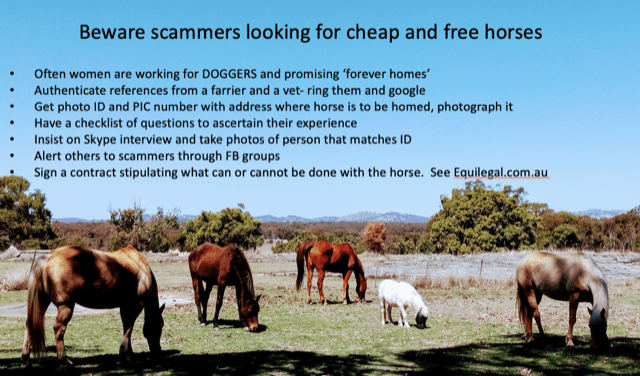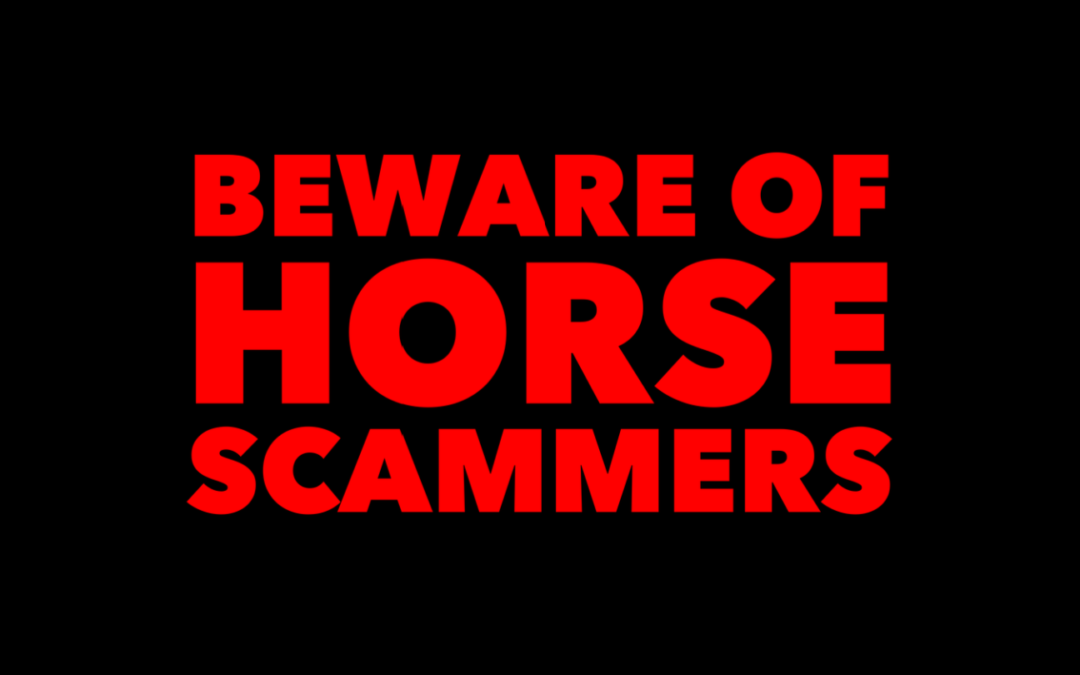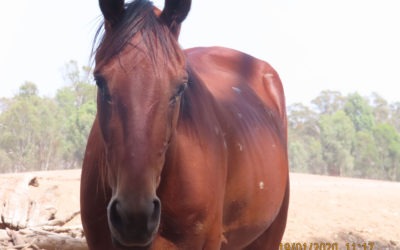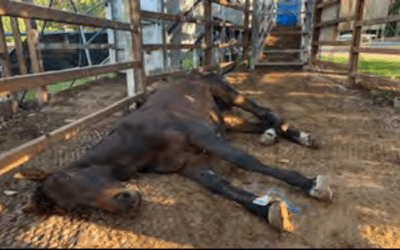HOW NOT TO BE FOOLED
As long as the slaughter of horses for human consumption and other purposes exists in Australia there will be those who pretend to be other than they are.
Unfortunately, on a regular basis, unsuspecting owners are duped into giving away or selling their horses to who they think are permanent loving homes, but who in reality are posing as such just to secure a horse for slaughter.
PLEASE NOTE: Before you think that your horse is too small, old or feeble or anything else to not be desirable to those looking to profit from horse slaughter – please think again. Any horse can be sold for slaughter including pregnant mares.
Unscrupulous people exist in every walk of life. It’s not any different when it comes to horses.
There are those who scan advertisements looking for free-to-good homes and for ads of horses or other equines being sold for a low or reasonable cost.
Even trainers of racehorses are duped. Scammers convince trainers they will retrain off-the-track racehorses but instead, they immediately sell them to a dogger where they end up being shipped to slaughter. Or they are offloaded at an auction and or advertised as beginner safe.
There have been cases where so-called “beginner-safe” horses are drugged to pass the scrutiny of a potential buyer – and of course, in the hands of a beginner, a horse who is not beginner safe may result in a disastrous situation.
Potential buyers of any horse, off the track or not, may pretend to be a rescue, or claim they are looking for a horse for a person or persons with disabilities.
Please don’t be duped by men or women, unfortunately, scammers come in all shapes and sizes — including pairs, and please don’t let your guard down if children are with a potential buyer.
Sometimes there are circumstances where because of our health or finances we have to relinquish an equine or equines. If that is the case PLEASE do your homework so your horse doesn’t end up at an abattoir or knackery. Again as long as horses are slaughtered in Australia the possibility exists that your horse could end up in the horribly cruel slaughter pipeline and on a dinner plate.
Again, scammers pretend they will give your horse or another equine a forever home when they have no intention of doing so.
If you find yourself in a situation where you must re-home your horse or horses, there are ways to do your best to protect your horse from ending up being slaughtered.
- Ask for multiple references including but not limited to a veterinarian, a farrier, and a feed store and then Google search and make sure that the names and occupations and phone numbers you’ve been given match what you find online. Then call those references. Scammers count on you not calling.
- Before you meet with a potential buyer, ask for a digital copy of their photo ID and a PIC number of where the horse is to be homed. Insist on a SKYPE, ZOOM, Facebook Messenger video call or FaceTime Interview — take a picture of the person — and then double-check that the person matches their ID. Check an actual physical copy of their ID when they arrive to pick up your horse or horses.
- If at all possible visit and inspect where your horse or other equine will be housed.
When interviewing a potential buyer do NOT be shy about asking questions but please don’t ask questions that can be answered with a yes or no. You want to hear your potential buyer or if you are giving a horse away, you want to hear the person you are considering giving your horse to describe what they will provide.
For example: If you ask a potential buyer:
“Will you provide shelter from the sun and other elements for this horse?”, that’s a question that someone can answer yes to.
You have basically told them what it is you are looking for.
Instead, ask them to describe in detail where your horse will be kept. AND ASK FOR PICTURES.
Phrase your question this way…
“Would you be kind enough to describe for me in detail where you will keep this horse?”.
Don’t use the word “shelter”, or any other “descriptive phrases”, please do not give them clues as to the standard of care you are wanting them to provide.
Then let them talk, listen carefully. Then don’t be shy about asking other questions.
Here are a couple of examples…
- What will you feed? Where will you get that feed?
- What kind of fencing do you have?
- What other animals do you have?
- Please tell me about animals you’ve had in the past and where they are now.
- Please describe your experience with horses. (Instead of “Are you experienced with horses? Again, you don’t want to give them any questions that can be answered with a simple yes or no.”)
Have a list of questions ready to ask potential buyers – and then use it. This is not the time to be shy. Honest and ethical persons will appreciate the fact that you care enough about your horse to inspect what you expect.
Strongly consider a contract between you and your buyer or the person you are gifting a horse to. Equilegal has a variety of contracts available.

#MOHM NEEDS YOUR HELP!
We’ve been threatened by those in the horse racing industry and those who benefit from horse slaughter more times than we can count.
But we are not going away.
We are going to persist until horse slaughter no longer exists for any purpose within Australia -- and until the horse racing industry makes drastic changes.
We are going to continue our hands-on work to offer lifelong sanctuary to as many horses as possible. We generally have 20 at just one of our locations - at any given time.
We have the acreage to take on more horses as financial support allows.
THE HORSE WITH NO NAME
Or did he have a name? He probably did but we will never know what it was, he had already become just a number identifiable only by the twine and tag around his neck. He bore no visible brand, not even under his long mane which hung naturally to both sides of his...
DEAD ON ARRIVAL
Yes we have Standards for the land transport of horses in Australia but they are not worth the paper they are written on, as the saying goes. There is no one policing the standards so horses can be on a truck without food and water for days and no one would know....










